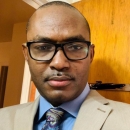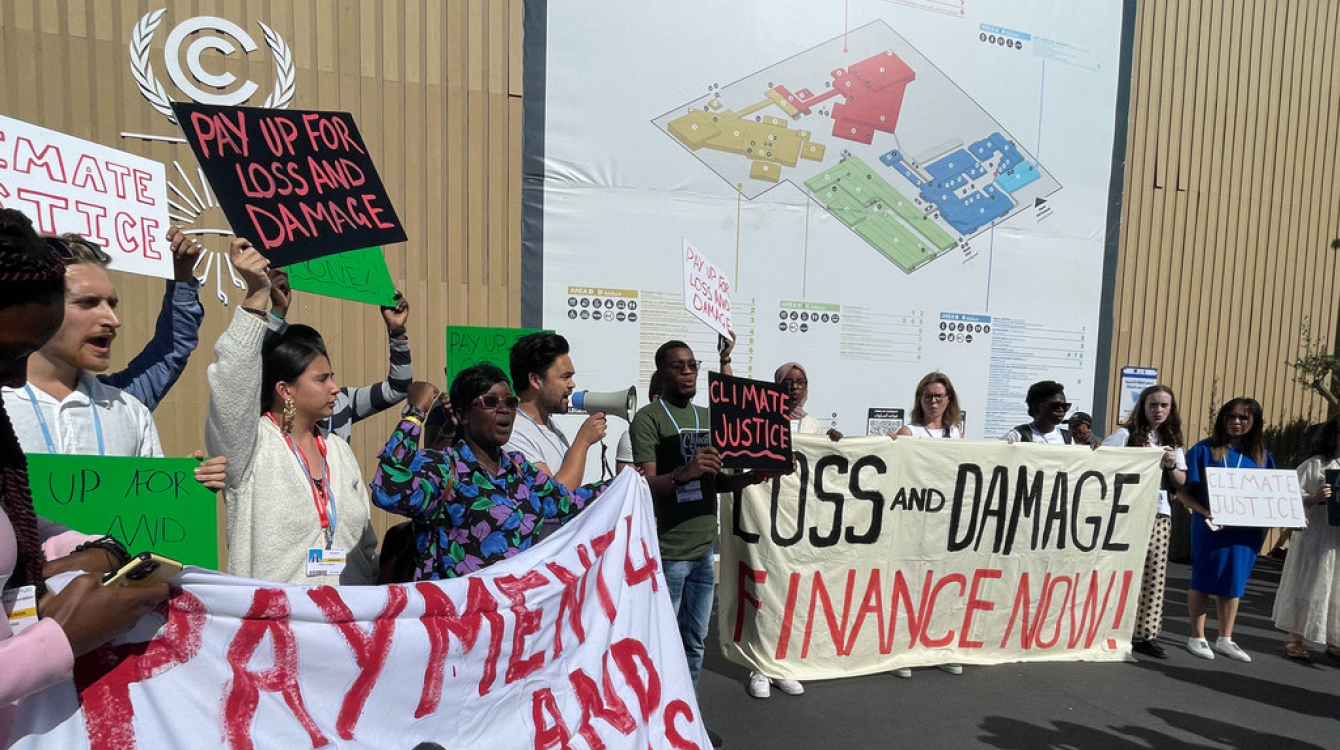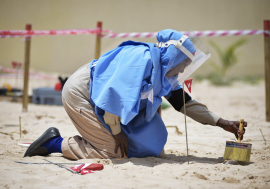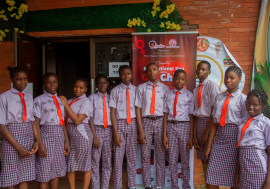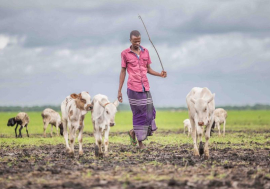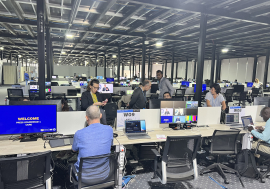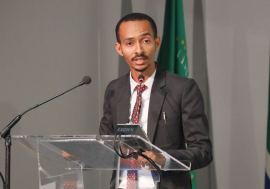Jean-Paul Adam is the Director for Technology, Climate Change and Natural Resources Management at the UN Economic Commission for Africa. At COP27 in Sharm El Sheikh in November 2022, Mr. Adam very actively advocated Africa’s needs. In this interview with Africa Renewal’s Kingsley Ighobor, Mr. Adam discusses Africa’s gains at COP27 as well as lingering issues, particularly on loss and damage:
What are the key takeaways for Africa from COP27?
It's a mixed result. Many people have focused on the principle of a facility on loss and damage. We should not underestimate how much of a game changer this is because it's a recognition that the most vulnerable countries will require urgent financing to address the immediacy of the climate crisis.
The other side of the coin is that the various COPs, including COP27, have been very process-oriented.
While the establishment of the fund is a victory, the fact is that resources are not going to flow immediately. There is still a huge debate about how it will be funded and who will pay into the fund. And these issues are fundamental to an effective operational modality that will allow funding to flow to those who need it the most.
We have seen floods in Nigeria and in Pakistan. We see the drought in Somalia and the Horn of Africa. All these issues are costing lives and property, and there is no mechanism at present to quickly provide resources to address the reality of the climate crisis for the most vulnerable. That sums up a little bit where we are with the COP27 outcome.
Africa has shown ambition in terms of where it wants to act but doesn't have the resources.
From Africa’s perspective, was COP27 a net positive or a disappointment?
It depends on expectations beforehand. Personally, I was pessimistic before COP27 and the adoption of the facility on loss and damage was a pleasant surprise. If you had asked me before COP27 if we will get it, I would have said no.
I think that we take progress where we can get it.
We must recognize the fantastic leadership of African negotiators and the COP27 Presidency.
But we should not let a victory distract us from the immediacy of the problem. We should not just fall into the same cycle of previous COPs where a lot essentially goes into the process for another year.
On loss and damage, the UN Secretary-General [António Guterres] has called for a global windfall tax on fossil fuel companies. This can be done immediately and would generate resources for loss and damage in the interim.
We have seen the value of climate advocacy at the individual level. The majority of voters around the world now see climate change as a major issue, and politicians are trying to respond to that. In the worst-case scenarios, politicians are paying lip service to climate change issues and trying to sit on the fence. In the best-case scenarios, they are moving to real action. There's a real value in citizens making sure that governments stick to the promises that they have made.
Many countries are looking to tax these companies for their own treasuries, but we need global solidarity.
The other positive is that I saw a lot of ambition and determination from African countries seeking to implement climate resilience on their own terms, based on the resources that they have; whether in terms of adopting energy pathways that are more resilient and sustainable or actually investing in climate adaptation.
I also saw that the interest in carbon credit markets is not only about raising finance, it's also because to claim the credits you have to invest in real projects that benefit people. A number of countries are looking at this precisely through that double-benefit prism. It's not just about the money you can raise, it's about channeling the resources to people who need them the most.
From Africa’s perspective, what needs to be done at the regional and national levels to move the needle on the key issues?
There are a few urgencies. The first one is around energy because energy will support Africa’s transformation. I choose the word “transformation” rather than “transition” because I think in Africa, we have to be looking at how we move the needle, not just in terms of our commitments under the Paris Agreement, but what it means to transform the economies of African countries. And that starts with energy access.
We have 24 countries out of 54 that have less than 50 per cent of their population without access to electricity. The first step to transforming these economies is energy access.
From the perspective of what is the most affordable and direct way to achieve energy access in the majority of countries, renewable energy is now actually the cheapest form of energy. We have to be realistic though, to address the issues of intermittency in some countries.
Some countries have hydro and some geothermal, but the focus must be on investment plans that are realistic and that allow access to energy and sustainable industrialization.
That's priority number one for Africa.
The most important thing that citizens can do is to demand action at the level of individual governments because it starts with asking that they act in the context of the Paris Agreement.
Secondly, it's about channeling investment into adaptation, which allows countries to deal with resilience and support populations on the frontline of climate change. This is dealing with things like agriculture, coastal fisheries - bread and butter issues. It's about properly securing the supply chain around food production within the continent.
We need to look at how we can use the levers of the African Continental Free Trade Area [AfCFTA] to better connect food producers and consumers on the continent and have a sustainable food production and consumption model that is aligned with the principles of a circular economy. That will make us more sustainable in terms of climate and will help improve livelihoods.
The third aspect is the mobilization of resources that can be invested to create this virtual circle. There has to be continued advocacy for the countries that have caused the damage to uphold the commitments they made under the Paris Agreement and provide the resources.
There is also a lot to be said for domestic resource mobilization opportunities and this includes tapping into carbon credit markets. It involves how we can refinance existing debt, in some cases debt suspensions or debt cancellations, refinancing existing debt on more affordable terms.
It's also about using emerging facilities such as the Resilience and Sustainability Trust of the IMF and mobilizing the developmental opportunity—having more resources through banks such as the African Development Bank (AfDB).
A focus on these issues will simultaneously contribute to commitments under the Paris Agreement and transform African economies.
You just mentioned there are many lingering issues in the loss and damage conversation. Do you think these issues can be resolved between now and COP28?
It's possible. People who have attended many COPs tend to sometimes see the negative because we get bogged down in the process. I think the pandemic and the armed conflict in Ukraine have shown us the limitations of multilateralism.
There is a big dose of geopolitics affecting every decision taken at the global level. This is leading to a certain amount of inertia and worse, it is also leading to a lack of solidarity. But the reality is that on climate change, and certainly on the current trajectory, everyone loses.
Nonetheless, I remain optimistic because it is very hard to get countries to agree on anything in this environment. The deal on loss and damage is, nonetheless, an indication that multilateralism is still alive and we just have to make sure that the process does not become the goal.
For people who are not climate negotiators and who don't necessarily make the policies, what should they do between now and COP28 to move the conversation forward in a meaningful way?
Many things. We have seen the value of climate advocacy at the individual level. The majority of voters around the world now see climate change as a major issue, and politicians are trying to respond to that. In the worst-case scenarios, politicians are paying lip service to climate change issues and trying to sit on the fence. In the best-case scenarios, they are moving to real action. There's a real value in citizens making sure that governments stick to the promises that they have made.
The most important thing that citizens can do is to demand action at the level of individual governments because it starts with asking that they act in the context of the Paris Agreement.
Are you seeing any impact in Africa of such citizen activism?
Absolutely. Of course, there's still a lot to be done in terms of ensuring that everyone fully understands the complex and multifaceted issues around climate change.
I think there is now more awareness of how the climate crisis impacts our everyday life and how it will impact our future. And there is a lot of anger in Africa that African countries and citizens contribute the least to this issue but are paying the most in terms of impact on their daily lives.

